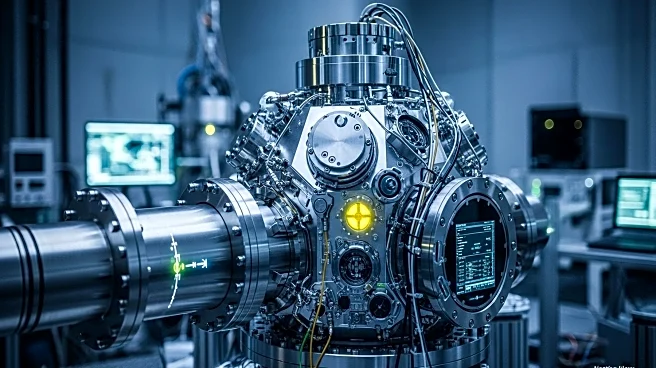What's Happening?
The Jiangmen Underground Neutrino Observatory (JUNO) has commenced operations with its 20,000-ton liquid scintillator detector, marking a significant milestone in particle physics. Located 700 meters underground in Guangdong Province, JUNO aims to determine the ordering of neutrino masses, a major question in the field. The detector, filled with ultra-pure water and liquid scintillator, will measure antineutrinos from nearby nuclear power plants with unprecedented precision. JUNO's design allows it to explore unknown physics, including sterile neutrinos and proton decay, and improve the precision of neutrino-oscillation parameters.
Why It's Important?
JUNO's operation represents a leap forward in neutrino research, potentially answering fundamental questions about the nature of matter and the universe. The detector's ability to measure neutrino masses with high precision could lead to breakthroughs in understanding particle physics, astrophysics, and cosmology. The international collaboration involved in JUNO highlights the global effort to advance scientific knowledge. The findings from JUNO could have profound implications for theoretical models and our understanding of the universe's fundamental forces.
What's Next?
JUNO is designed for a scientific lifetime of up to 30 years, with plans for upgrades to search for neutrinoless double-beta decay. This upgrade could probe the absolute neutrino mass scale and test whether neutrinos are Majorana particles, addressing key questions in particle physics. The ongoing data collection and analysis will provide insights into neutrino behavior and contribute to the broader scientific community's understanding of these elusive particles. Future collaborations and technological advancements may further enhance JUNO's capabilities.









